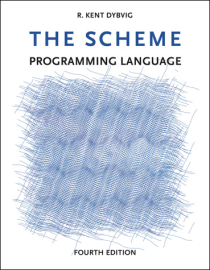Learn
Use the documentation listed here to get you started using Guile. If you get stuck and need some help to figure something out, don't be afraid to ask the Guile community that hangs out at the #guile channel on the Libera IRC network, or subscribe to the guile-users mailing list. Also, don't forget to exercise your freedom to study the source code of the software written with Guile; that's another great way to learn!
Tutorials
A Scheme Primer
This tutorial by Christine Lemmer-Webber and the Spritely Institute is a great introduction to everything you need to know about the Scheme programming language, with lots of examples directly applicable to Guile.
Reference manuals

Guile 3.0
The current stable release series. Guile's reference manual is also included in each Guile distribution and should be accessible via Emacs' Info mode once you have installed Guile.
Reference manuals for older versions of Guile:
Scheme resources

The Revised6 Report on the Algorithmic Language Scheme
A recent Scheme standard supported by Guile. This report includes an overview of Scheme and a formal definition of the language and its standard libraries.
The Revised7 Report on the Algorithmic Language Scheme
Another recent Scheme standard supported by Guile.
The Revised5 Report on the Algorithmic Language Scheme
An older Scheme standard implemented by Guile.
The Revised4 Report on the Algorithmic Language Scheme
An older revision of the Scheme standard.
Scheme Reports web site
Where standardization discussions happen.
The Internet Scheme Repository
A good source of links, code, and documentation for scheme.
Schemers.org
A list of Scheme resources including documentation, software, communities, jobs, and events.
MIT's Scheme home page
Not quite as extensive as the Scheme Repository or Schemers.org.
Scheme Requests for Implementation
Contains proposals for a number of Scheme extensions. Many of these tend to exist in one form or the other in a lot of the different Schemes, but can have wildly different interfaces. The SRFI process is essentially aimed at making these non-standard features more standard, without actually being standard (see also: obfuscated). Guile implements a large number of SRFIs.
Suggested bibliography

Structure and Interpretation of Computer Programs (SICP)
An influential text used at MIT's as the basis for entry-level computer science courses. The material is aimed at instructors using SICP as a course text, and at people using the book for self-study.

The Scheme Programming Language (Fourth Edition)
This is a reference of the Scheme programming language covering everything from the basics to syntax-rules and syntax-case macros, using R⁶RS programming interfaces. It includes numerous examples and exercises.